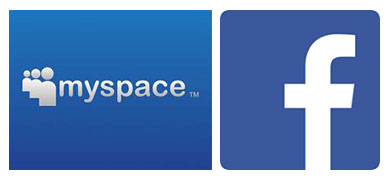This “study” –which has not been published in a peer-reviewed journal and is in fact a paper presented at a symposium–claims that Facebook will lose 80% of its users by 2017, based on epidemiological models of infectious disease, and compares it to MySpace’s demise. This is so dumb on its face, it’s hard to believe Princeton is associated with it. That’s because the proxy they use for measuring usership of Facebook and MySpace is how often the terms are used alone in a Google search.
What? How does that have any relationship to how much people use Facebook? MySpace was, in fact, killed by Twitter and Facebook. What is replacing Facebook? Not SnapChat. Not Google+, to the consternation of its fans.
As you read the study, you begin to suspect that the authors–who are not epidemiologists nor computer scientists, but are associated with the the Department of Mechanical and Aerospace Engineering at Princeton, aren’t even qualified to draw these conclusions. In fact, the authors Cannarella and Spechler are Ph.D. candidates in fields that have nothing to do with this subject.
So why is this a big deal? Because when a big news outlet like NBC News runs a story, people believe it. They don’t stop to read the original paper and if they did, the academic jargon would make it incomprehensible to most. But it has an effect. Facebook is a publicly traded company. A story like this could affect the stock price and change the valuation by millions. It could also be the sort of thing that creates the end it predicts by convincing people that Facebook is dying and they should go somewhere else.
Mainstream media reporting on academic papers and studies is an ongoing problem because of the facile way they are treated, as if conclusions drawn in the paper equal hard scientific fact. But we’ve all seen that studies aren’t the end-all. Once upon a time we were told that salt was a killer and now we’re told that maybe many people don’t get enough. We were told to eat no more than one egg per week and now we should eat an omega-strengthened egg per day. The list goes on and on.
So take what you see in the media from studies with a giant grain of salt and rest assured you’ll be enjoying Facebook for years to come.
Image Credit
- myspacefacebook: Logos owned by News Corp and Facebook, respectively | Copyright by owner, used under Fair Use doctrine







